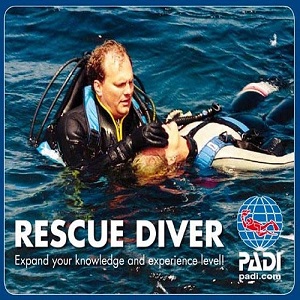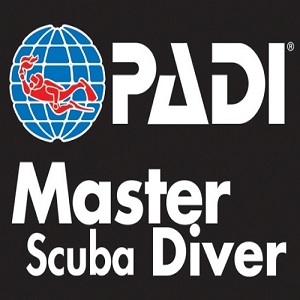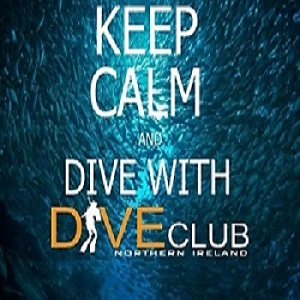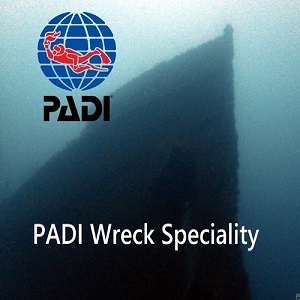PADI Advanced Open Water Course In Northern Ireland
Discover new adventures hidden deeper
The PADI Advanced Open Water course is designed to enhance your diving skills in a number of specialty areas whilst gaining supervised experience. It consists of five open water dives in specialist diving areas including deep and navigation. Upon completion you will be qualified to dive to 30 meters in conditions similar to or better than those you were trained in.
In Open Water, you learned the basics of how to scuba dive. In this progression course, you are enhancing your skills and learning how to think and act like a diver. It’s the opportunity to gain more experience, continue your diving education and sample different scuba specialities under the supervision of an instructor.
The PADI Advanced Open Water Course consists of 5 different adventure dives. An adventure dive is the first dive of a speciality course. With many PADI speciality courses to choose from, the Advanced Course will introduce you to the huge variety of different types of diving you can experience.
If you enjoy the adventure dives, you can pursue them further through speciality training. For instance, to obtain a full Wreck Diver Speciality certification, it requires three more dives with the corresponding training.
Why should you do your PADI Advanced Open Water training?
In short – it opens up more diving possibilities, enhances your skills, and is the next step on the learning ladder if you want to go on to become a dive professional. It’s important to remember though that just because the course says “Advanced” in the title, it doesn’t instantly make you an experienced diver.
Once you Certify to PADI Advanced Open Water Diver, you can dive deeper. You’ll be certified to 30m/100ft, giving you access to a wider variety of dive sites and marine life. There are many sea creatures that you can’t see at shallower depths, and wrecks are often found deeper than the 18m/60ft maximum your Open Water Certification allows you to go to.
What are the prerequisites for the Advanced Open Water Course?
You do not need to be an advanced diver to take this course, all you need is your Open Water Certification. The Open Water Course will give you the necessary core competencies to continue on to the Advanced Course. Many students go straight from Open Water to Advanced Open Water and there is no minimum numbers of dives required.
PADI Junior Open Water Divers who are at least 12 years old can step up and enrol in an Advanced Open Water Diver course, with some restrictions. After completing the Advanced Course they will be certified up to 21m/70ft, and will automatically upgrade to 30m/100ft when they turn 15.
Course Breakdown
The Advanced Open Water Course is a fairly easy courses to complete, as there are no quizzes, exams, or pool sessions. The PADI Advanced Open Water Course consists of 5 different adventure dives. You are required to do a knowledge review for each dive, which your instructor will go over with you before getting in the water. The course can be done over 2 or 3 days, with up to 3 dives being completed in one day. Usually this will consist of 2 dives during the day and a night dive, if you choose the night dive as one of your options.
Of the five training dives you must complete, the Deep Dive and Underwater Navigation Dive are both mandatory.
Deep Adventure Dive
As you drop below 18m/60ft, your air consumption increases (due to the increased ambient pressure), no stop time decreases, buoyancy declines (as wetsuits compress), and you may begin to feel the effects of nitrogen
None of these are hard to deal with, as long as you know how to manage them. On your Deep Dive, you will learn how to deal with these effects, learn about colour changes at depth, pressure changes, and test how susceptible you are to nitrogen narcosis.
Underwater Navigation Adventure Dive
While some people are natural navigators many of us struggle with this skill, making the navigation dive one of the less popular specialties. However, it is a mandatory dive because it is an important skill to learn.
The priority of underwater navigation is to bring you back to the boat, shore or proper exit point safely. Good navigation techniques also increase your dive plan’s effectiveness. You’ll go directly to what you wish to see without wasting no-stop time and gas searching the site.
You’ll practice your compass navigation skills on land first, and then refine those skills under the water, using kick cycles, visual landmarks, and time. If you’re nervous about the navigation dive, you can practice this skill at home.
Purchase your own compass, which is a good piece of equipment to own, or download a compass app on your phone. There are plenty of free options for both Android and iOS.
What optional adventure dives are there?
DiveClub Northern Ireland offers the following PADI speciality courses to choose from:
Peak Performance Buoyancy, Boat Diver, Coral Reef Conservation, Digital Underwater Photography, Drift Diver, Night Diver, Dry Suit Diver, Enriched Air Diver, Fish ID, Project AWARE Specialist, Search and Recovery, Underwater Naturalist, Wreck Diver, Underwater Videographer, Dive Against bebris
The course helps build confidence and expand your scuba skills through different Adventure Dives. You can try out different specialties while gaining experience under the supervision of your PADI Instructor. You log dives and develop capabilities as you find new ways to have fun scuba diving, it’s all about experimentation of different types of diving and broadening your knowledge and skill sets.
For the Advanced there are two required dives – Deep and Underwater Navigation – and you choose the other three, for a total of five dives. During the Deep Adventure Dive, you learn how to plan dives to deal with the physiological effects and challenges of diving to deeper depths. The Underwater Navigation Adventure Dive refines your compass navigation skills and helps you to navigate using kick cycles, visual landmarks and time, building on your skills from the Open Water Course.
The other knowledge and skills you get vary with your interest and the adventures you have buoyancy control, search and recovery, exploring wrecks and many more.
Once you complete your Advanced you will be qualified to dive to a maximum depth of 30m. Think of how many dive sites that would open up for you!
WHAT'S INCLUDED IN THE COST
- 5 open water dives over 2 days usually at the weekends
- Kit hire included for Open Water dives; suit, Air cylinder, regulators and gauges, BCD, weights and dive computer.
- Free onsite car parking
- PADI E-Learning Pack
- PADI Digital certification Card available on the Padi App–Certification That lasts a lifetime
Price Excludes
- Dive site entry fees to quarries if used
- Any Transport to the dive sites.
COURSE PREREQUISITES
- PADI Open Water Diver or Junior Open Water Diver (or qualifying certification from another organization)
- Be medically fit to dive, please carefully read the medical declaration below.
- Pre study course manual and fill in the Knowledge Review sections.
- 12 years (12 to 14 year olds will be certified as Junior Advanced Open Water Diver)
- 2 free days on a weekend
If you want to find out more about this or anything else please contact us now on 07519191911 we will be Glad to assist you Further




